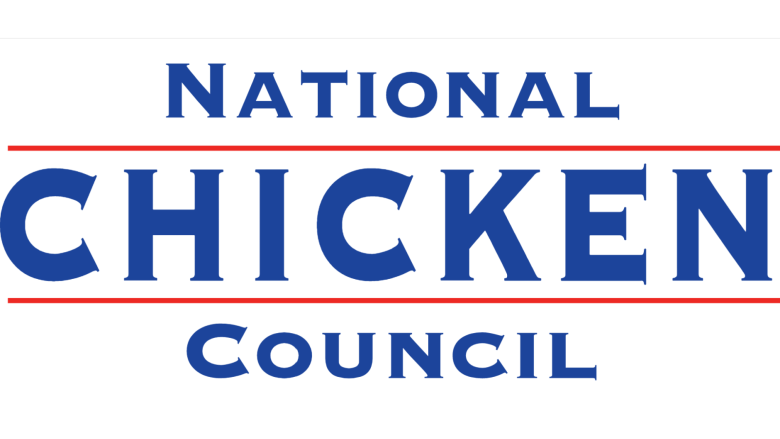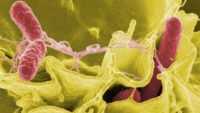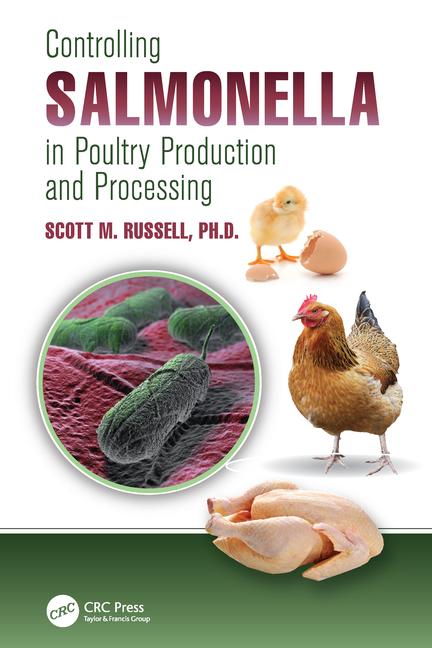NCC expresses concerns with new FSIS Salmonella regulation
NCC is concerned about the regulation's potential impact on the industry.

Courtesy of the National Chicken Council
The National Chicken Council is releasing the following statement in response to FSIS announcing its plans to declare Salmonella an adulterant in frozen, raw, breaded, stuffed chicken products. The statement below is attributable to NCC President Mike Brown.
"NCC is gravely concerned that the precedent set by this abrupt shift in longstanding policy has the potential to shutter processing plants, cost jobs, and take safe food and convenient products off shelves, without moving the needle on public health."
"As these products often appear ready to eat, but contain raw chicken, we recognize their nature raises special considerations that merit additional attention. The National Chicken Council (NCC) and our member companies have invested millions of dollars and have worked for more than a decade to develop and refine best practices for these products to reduce Salmonella and protect public health. These efforts have been paying off, demonstrated by a significant decline in illnesses over the past seven years."
There has been one outbreak associated with these products since 2015.
"NCC estimates that on an annual basis, over 200 million servings of this product will be lost, 500-1000 people will lose their jobs, and the annual cost to industry is significantly higher than USDA’s estimates. It is likely that this proposal would drive smaller producers of this product out of business entirely"
"This administration has prioritized addressing concerns with food availability and affordability. This proposal would undermine these goals by driving up food costs, reducing the supply of convenient, nutritious chicken, and forcing lower-income consumers of these products to purchase more expensive alternatives."
"We’re equally concerned that this announcement was not science-based and not driven by data, risk assessments, product testing or scientific analysis."
"Going back to the passage of the Poultry Products Inspection Act in 1957, the mere presence of Salmonella has not rendered raw poultry adulterated. We believe FSIS already has the regulatory and public health tools to work with the industry to ensure the continued safety of these products. We’ve been asking the agency for years to collaborate on these efforts, including two petitions for stricter regulations, requests that have gone largely ignored."
"There is no silver bullet or one-size-fits all approach to food safety, which is why we employ a multi-stage strategy. The only way to ensure our food is safe 100 percent of the time is by following science-based procedures when raising and processing chicken, and by handling and cooking it properly at home."
"NCC remains confident these products can be prepared and consumed safely, and the industry remains committed to continuing their efforts to further enhance the safety of these products."
Background
Not-ready-to-eat (NRTE) frozen, raw, breaded, stuffed chicken products would include products like chicken cordon bleu and chicken Kiev. They are typically sold raw, labeled to indicate their raw nature, and must be cooked properly by following the instructions on the package.
FSIS has long interpreted the Poultry Products Inspection Act such that Salmonella is not an adulterant in raw poultry, a view reinforced by federal courts as well. Chicken processors take a number of steps to reduce and control Salmonella during processing, and final customary consumer cooking to an internal temperature of at least 165 degrees Fahrenheit destroys any Salmonella that may remain. FSIS has never, since the Poultry Products Inspection Act was passed in 1957, taken the view that the mere presence of Salmonella on raw poultry renders the product adulterated.
Fourteen outbreaks associated with these products have been investigated by public health officials since 1998. Prior to one 2021 outbreak, the last multistate outbreak of NRTE stuffed chicken products was in 2015, meaning one outbreak in the past seven years. On average, there have been 10 illnesses associated with these products annually since 1998, mostly due to improper cooking.
In the 2021 investigation, some consumers reportedly did not cook the stuffed chicken products using a validated process (oven), as described on the product label, to ensure that the product was thoroughly cooked to an internal temperature of 165 degrees Fahrenheit. Instead, some consumers reported using a microwave or air fryer.
As a result of this outbreak and other previous pre-2015 outbreaks associated with these products, FSIS sought advice from the National Advisory Committee on Meat and Poultry Inspection (NACMPI), which advises FSIS on matters affecting federal inspection program activities. NCC viewed this as a welcomed step toward more direct involvement to reinforce efforts for this product class. The NACMPI subcommittee reported several recommendations to FSIS, many of which presented practical steps that could be taken immediately and which NCC supported, and none of which was to declare Salmonella an adulterant in these products.
Additionally, NCC has twice petitioned FSIS asking for mandatory and stricter labels for these products to help consumers better understand the proper cooking procedures. Neither petition has received a response. This approach was also recommended by NACMPI.
In addition, in August 2022, NCC wrote to FSIS leadership asking the agency to draw on existing regulatory tools and policies and offered seven specific, rigorous steps that NCC believes would have an impact on public health. NCC is yet to receive a response to the letter.
Even though Salmonella was not considered an adulterant in these products, the industry has treated their safety as a top priority for more than a decade. These efforts have included obtaining source material from Category 1 establishments, testing source material, testing other product ingredients, revising labels to emphasize these products’ raw nature and proper cooking requirements, researching consumer understanding of labels, and even evaluating palatability and consumer acceptance of fully cooked versions of these products.
Source: National Chicken Council
Looking for a reprint of this article?
From high-res PDFs to custom plaques, order your copy today!






